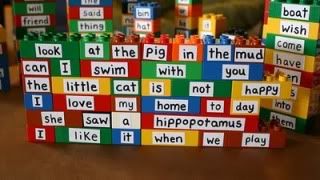Routman says, “
Teachers can’t be expected to be accountable if they are told specifically what to do. Accountability requires professional autonomy to do what’s right. The best teachers are “not followers” and have an “independent spirit.” Based on their professional and moral knowledge and judgment, they override directives when something else will work more effectively.”
This quote is very challenging and thought-provoking as I have read it several times. Teachers need to be researchers. They need to know what works and what research clearly states. To use programs and practices that are clearly against research is detrimental to students and shows poorly in our professional career. When we know the research, we need to be advocates for what it says and how to use it correctly in the classroom. By joining committees or task-forces, we can help our advocacy for best-teaching practices.
Most importantly, schools
have to work together for the best of their students. It doesn’t matter if each individual teacher is a fantastic teacher, if a school community cannot work cohesively as a
TEAM, test-results will reflect that. Sometimes this gets into sticky situations about reimbursement for time outside of regular hours or what our union might believe. However, as a teacher, we’ve taken a vow and dedicated our lives to a career where we put children first. Until difficult conversations are held and professional learning communities are part of our
WEEKLY schedules, we should not expect any improvement. When teachers have the belief that things can change, things will, and not until that change in belief occurs. That is where the heart of teaching matters.

(My 2nd grade son who struggles to be motivated to write.)
Some questions to ponder about this chapter:
• In what ways do I advocate for what I know is research-based, best practices?
• Do I participate in a weekly professional learning community with my coworkers?
• How can I advocate to parents and community members about best-teaching practices for writing?





